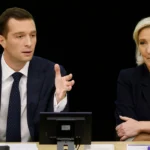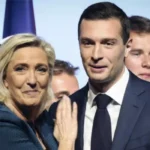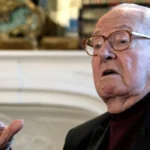As the June 9 election approaches, we hear and read a little bit about everything and its opposite around the European Union and its powers. The idea is therefore, through this article, to shed a little more light on the realities of defense, and finally defense aeronautics. Skills born 20 years ago with the founding of the AED, the European Defense Agency currently headed by Czech diplomat Jiří Šedivý. Without knowing it, you already know about the actions she has implemented.
For our readers outside the European Union, you should know that on Sunday June 9, 2024, voters in member countries are called to the polls. We must renew the Parliament of Strasbourg, the beating heart of European democracy. In each country there are a number of lists representing all possible and imaginable ideological sensibilities. In France we have thirty-seven this year, a real nightmare for the municipalities responsible for organizing official displays and running polling stations. In the European Parliament you have everything. The extreme right and extreme left of course who generally vomit their hatred of the EU and do not generally stand out for their attendance in the hemicycle but are not asked to garner subsidies from the so-called EU. The more traditional, more respectable parties, right and left of governance, centrists, and ecologists, fortunately represent the bulk of the contingent of MEPs. Fundamentally it is these latter formations which are at the origin of the founding of the European Union as we know it today. The one that comes from the European Coal and Steel Community and then the European Economic Community. The one that was in fact forged from the ashes of post-1945 Europe. In many ways the EU is the guarantor of peace in Europe.
And contrary to what some would still like to believe, the EU has competence in matters of defense. For this, it has had the AED, the European Defense Agency, in Brussels since 2004. Its detractors say it is subservient to NATO, which is completely false. Diplomatic relations do exist between the two defense organizations but there is no link of subordination between one and the other. AED and NATO exist in parallel and coexist for European members of the EU only. Norway, Serbia, Switzerland and Ukraine, although not members of the EU, each have cooperation agreements with the AED. The latter is therefore not an obtuse and withdrawn organism as the (internal) enemies of the EU would like to have you believe.
In aeronautics, the European Defense Agency has skills recognized as far away as the United States. The large-scale exercises that it has implemented attest to this. In the field of military rotary wings, the Black Blade, Fire Blade, Green Blade, and Hot Blade maneuvers are blatant demonstrations of this. It was in fact from 2012, only eight years after the founding of the AED, that these exercises appeared in member countries. Joint training which is not necessarily focused on long-distance force projections but also on issues within the European Union itself, and in particular in the context of humanitarian missions. Fixed wings are not left out, notably with the famous deployments called European Air Transport Training and European Air-to-Air Refueling Training. The first falls into the field of tactical transport and logistical support and the second into that of in-flight refueling. Targeted regional exercises exist, one of the most famous being Balkan Spartan. It brings together Bulgarians, Greeks and Romanians, while Germans and Italians participate as guests.
This article is originally published on avionslegendaires.net






